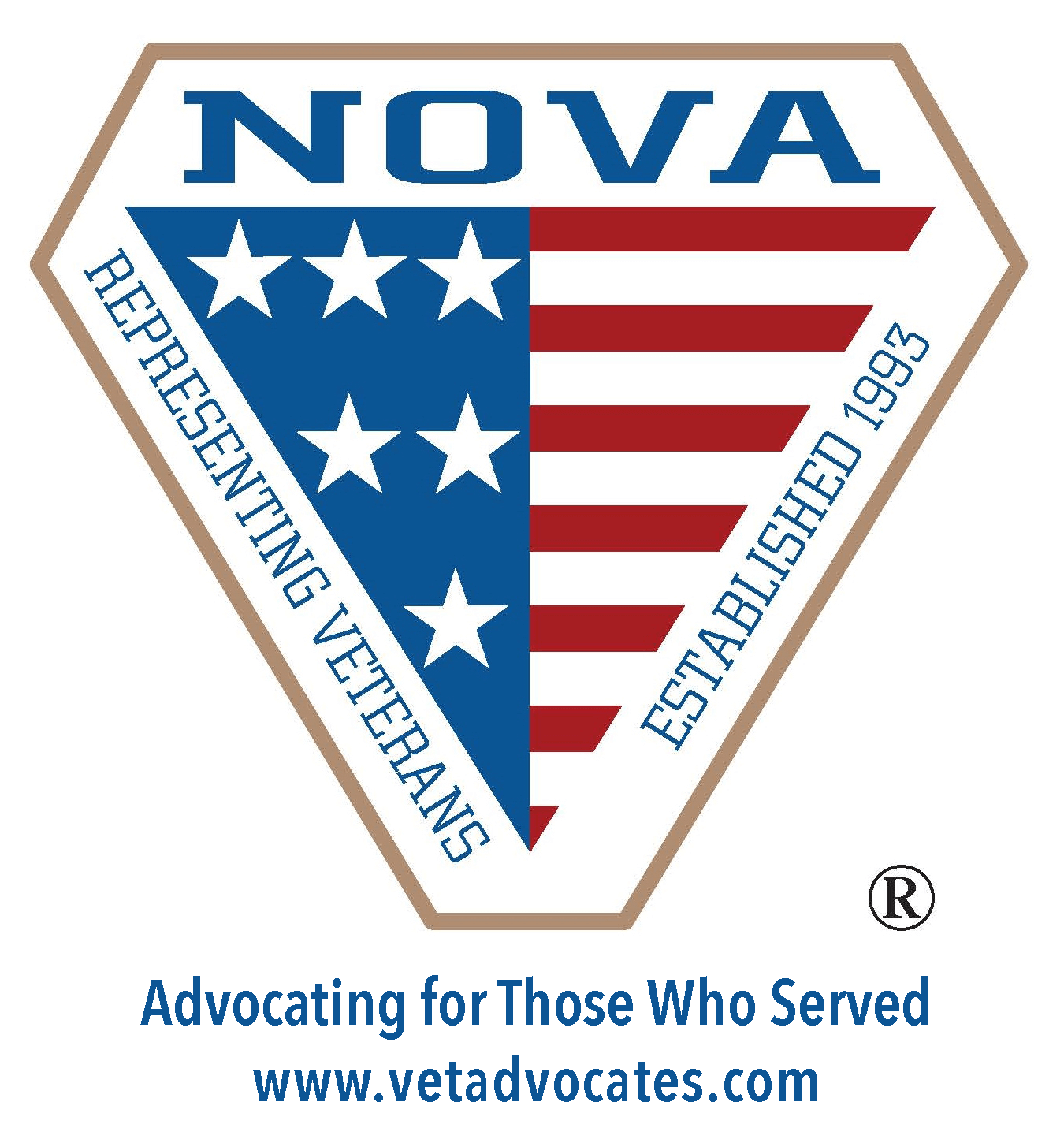If you suffer from post-traumatic stress disorder (PTSD) as a result of your military service, you deserve VA compensation. This post explains the PTSD VA rating and introduces some key considerations to get you all of the compensation you deserve.
Talk to Us About Your Claim:
(866) 232-5777
In this article about getting a PTSD VA rating:
You began serving in the military as one person and feel like you came back as another. You saw things you can’t unsee and had experiences you can’t fully wrap your brain around. Now you sometimes feel like a ticking time bomb. You never know how you’ll react to even small things that may trigger you. You don’t feel in control of your emotions, and it’s scary.
If you experience PTSD related to your military service, you deserve compensation from the VA. Understanding the VA’s PTSD disability rating and how to get these benefits can help.
PTSD in veterans
PTSD is the most severe trauma disorder. It happens after a person is exposed to an extreme stressor or stressors and can’t process the related emotions. These stressors may be due to combat or could be non-combat related. Non-combat stressors can include vehicle accidents, military sexual trauma (MST), or other traumatic incidents that happen on base or during training.
Veterans are considered a population prone to PTSD. About 7% of veterans experience PTSD, which is higher than the civilian average. In fact, PTSD is the fourth most commonly service-connected condition for VA disability benefits. More than 1.3 million veterans receive compensation from the VA for PTSD. Veterans are also more likely to be diagnosed with PTSD or depression if they experience an event that causes moral injury.
PTSD symptoms can develop almost immediately or years after a traumatic event.
PTSD symptoms include:
- Re-experiencing the trauma through flashbacks, nightmares, or intrusive thoughts
- Avoidance of people, places, or things that are reminders of the trauma
- Being jumpy or on edge
- Depression
- Anxiousness
- Guilt
- Hopelessness
- Extreme irritability or anger
- Emotional responses out of proportion to an event
- Social isolation
- Risky behavior

This mental health condition can also show up in the body. Physical symptoms of PTSD may include:
- Insomnia or sleep disturbances
- Fatigue
- Muscle tension, aches, or pains
- Gastrointestinal issues
- Headaches or migraines
- Sensitivity to light or noise
Doctors treat PTSD through therapy and medication. PTSD symptoms will not go away without treatment and will likely worsen without professional assistance.
PTSD VA rating
Veterans can receive a PTSD VA rating if their PTSD was caused or worsened by military service. A 100% rating for PTSD would get you $3,737.85 a month.
The VA rates PTSD using diagnostic code 9411 in the Schedule of Ratings which uses the rating criteria in the General Rating Formula for Mental Disorders. Mental health disorders can be rated at 0%, 10%, 30%, 50%, 70%, or 100%, depending on how severe symptoms are and how often you experience them.
| Description | VA Rating | Monthly payment* |
|---|---|---|
| Total occupational and social impairment, due to such symptoms as: gross impairment in thought processes or communication; persistent delusions or hallucinations; grossly inappropriate behavior; persistent danger of hurting self or others; intermittent inability to perform activities of daily living (including maintenance of minimal personal hygiene); disorientation to time or place; memory loss for names of close relatives, own occupation, or own name. | 100% | $3,737.85 |
| Occupational and social impairment, with deficiencies in most areas, such as work, school, family relations, judgment, thinking, or mood, due to such symptoms as: suicidal ideation; obsessional rituals which interfere with routine activities; speech intermittently illogical, obscure, or irrelevant; near-continuous panic or depression affecting the ability to function independently, appropriately and effectively; impaired impulse control (such as unprovoked irritability with periods of violence); spatial disorientation; neglect of personal appearance and hygiene; difficulty in adapting to stressful circumstances (including work or a worklike setting); inability to establish and maintain effective relationships. | 70% | $1,716.28 |
| Occupational and social impairment with reduced reliability and productivity due to such symptoms as: flattened affect; circumstantial, circumlocutory, or stereotyped speech; panic attacks more than once a week; difficulty in understanding complex commands; impairment of short- and long-term memory (e.g., retention of only highly learned material, forgetting to complete tasks); impaired judgment; impaired abstract thinking; disturbances of motivation and mood; difficulty in establishing and maintaining effective work and social relationships. | 50% | $1,075.16 |
| Occupational and social impairment with occasional decrease in work efficiency and intermittent periods of inability to perform occupational tasks (although generally functioning satisfactorily, with routine behavior, self-care, and conversation normal), due to such symptoms as: depressed mood, anxiety, suspiciousness, panic attacks (weekly or less often), chronic sleep impairment, mild memory loss (such as forgetting names, directions, recent events). | 30% | $524.31 |
| Occupational and social impairment due to mild or transient symptoms which decrease work efficiency and ability to perform occupational tasks only during periods of significant stress, or symptoms controlled by continuous medication. | 10% | $171.23 |
| A mental condition has been formally diagnosed, but symptoms are not severe enough either to interfere with occupational and social functioning or to require continuous medication. | 0% | None |
A PTSD VA rating of 70% usually means the veteran cannot live their life normally. Proving your condition is severe enough to receive a 70% rating is often difficult, but not impossible. A 100% rating can be even more difficult to prove and means your PTSD symptoms result in total impairment. If you think your PTSD rating is too low, you can appeal the VA’s decision.
VA SMC for PTSD
Some veterans with PTSD also may be owed special monthly compensation (SMC). SMC is a type of benefit for veterans that is separate from the compensation you receive based on your rating.
The VA provides SMC for various reasons, most often related to the loss of function of extremities, like the arms and legs, and other senses. SMC is sometimes related to quality of life measures, like activities of daily living you’re unable to do on your own. Your PTSD may make you eligible for SMC if the symptoms cause you to need assistance with daily living activities.
VA C&P exam for PTSD
You will need to complete a VA compensation and pension (C&P) exam to receive a disability rating for PTSD. A C&P exam can be used to determine if your disability is related to your time in service and assesses your level of disability. The VA uses this information to determine if your condition is service-connected and how severe your PTSD is to determine your disability rating. This rating will also affect the amount of compensation you receive.
You can expect a lot of questions from a medical professional during a C&P exam for PTSD. You’ll likely undergo a psychiatric evaluation for PTSD, where they’ll ask you about your personal history and current symptoms. They want to know how your mental health concerns impact your daily life.
During your C&P exam, you should be ready to speak honestly about your symptoms and tell the medical professional specific details about how they affect your daily life. Tell them about anything you used to be able to do that you can’t do anymore and why. Don’t inflate your concerns, but do make them known and do it honestly. PTSD can have a serious impact on the daily lives of many veterans, and you should not hold back these details. Don’t forget to describe exactly how your military service relates to your condition, even if it seems obvious.
The doctor may decide that you can get VA disability for depression instead of PTSD. The VA is required to give you whichever rating would be highest based on all of your symptoms.
VA unemployability for PTSD
PTSD makes work extremely difficult or impossible for many veterans. Symptoms like depression, fatigue, and anxiety can make it impossible for a person to earn and keep employment.
For example, PTSD can make it difficult to concentrate, which means you may not be able to remember information or succeed in a job that requires detailed work.
The constant state of alertness associated with PTSD can make it difficult to relax or sleep, which means you may not be able to perform tasks that require focus or energy.
Avoiding trauma triggers may make it difficult to go to an office or workplace or perform certain tasks. The extreme emotional responses associated with PTSD can also make it difficult for you to have professional relationships with others.
Some veterans with PTSD can’t work at what the VA calls “substantially gainful employment” because of their symptoms. These veterans are entitled to total disability based on individual unemployability (TDIU). This tax-free monthly benefit ensures those veterans can still support themselves and their families despite their inability to work. Veterans eligible for TDIU receive VA disability compensation at the 100% rate without their condition being rated 100% disabling.
When submitting a TDIU claim for PTSD, you can provide evidence along with your medical records that support your claim. This evidence may include lay statements, which are supportive statements from family members or friends who have witnessed how your symptoms impact your life. You also may submit a buddy statement from a fellow service member who saw the same trauma or has seen how your PTSD symptoms have affected you.
TDIU eligibility:
To qualify for schedular TDIU, you must have:
- at least one service-connected disability rated at least 60% OR
- two or more service-connected disabilities, at least one disability ratable at 40% or more, with a combined rating of 70% or more.
Mental health conditions are often rated alongside other physical conditions and can combine in a way that qualifies you for TDIU, even if your mental health rating is low.
“The reason TDIU is such a big deal is that you’re paid out the same as a 100% disability rating,” VA disability lawyer Zack Evans said. “If all of your conditions add up to 70% and you’re at 50% for mental health, but you just can’t seem to bump that rating any higher, proving that you’re unemployable due to your service-connected conditions can help you jump the gap and get to a 100% rating.
“Every case is completely different, and that’s why it’s really important that whatever representative you choose, it’s someone who’s focused on your specific facts – bringing your story out and discussing why your unemployability actually flows from your time in service. Regardless of what your reason was for leaving the workplace, if the medical evidence shows that your current service-connected conditions leave you unemployable, you could potentially win a TDIU claim.”
“The firm got me to 70%, and I was happy. Individual unemployability was awarded to me and to this day, I’m so grateful. My future is no longer bleak. These people work very hard for you.“
How our VA-accredited attorneys can help
Woods and Woods has worked with thousands of veterans nationwide to get them the VA benefits they deserve. Call us for a free case evaluation to find out how we can help. If we take your case, you only pay us a percentage of your back pay if you win.
Talk to Us About Your Claim:
(866) 232-5777
FREQUENTLY ASKED QUESTIONS
The average VA disability rating for mental health conditions including PTSD is 70%, which means you experience significant occupational and social impairment resulting from the trauma disorder.
Yes, you can receive VA disability for PTSD if you had it before you went into the service. In this case, you would need to be able to prove that your military service worsened your PTSD symptoms.

Neil Woods
VA disability lawyer
Woods and Woods
VA Accreditation Number: 44739



